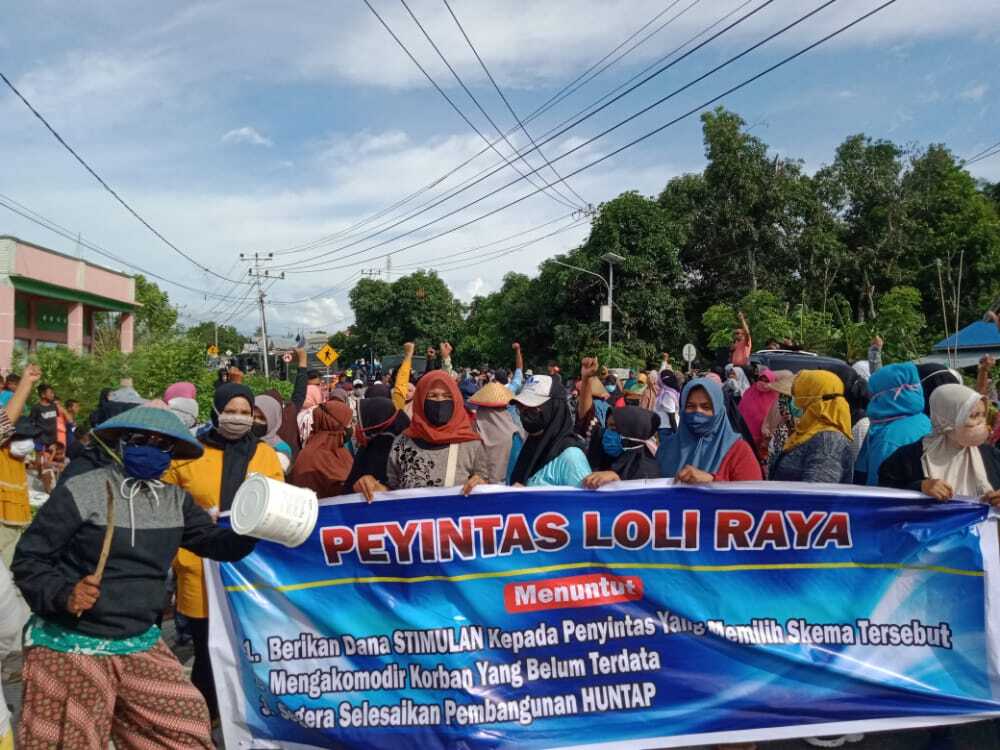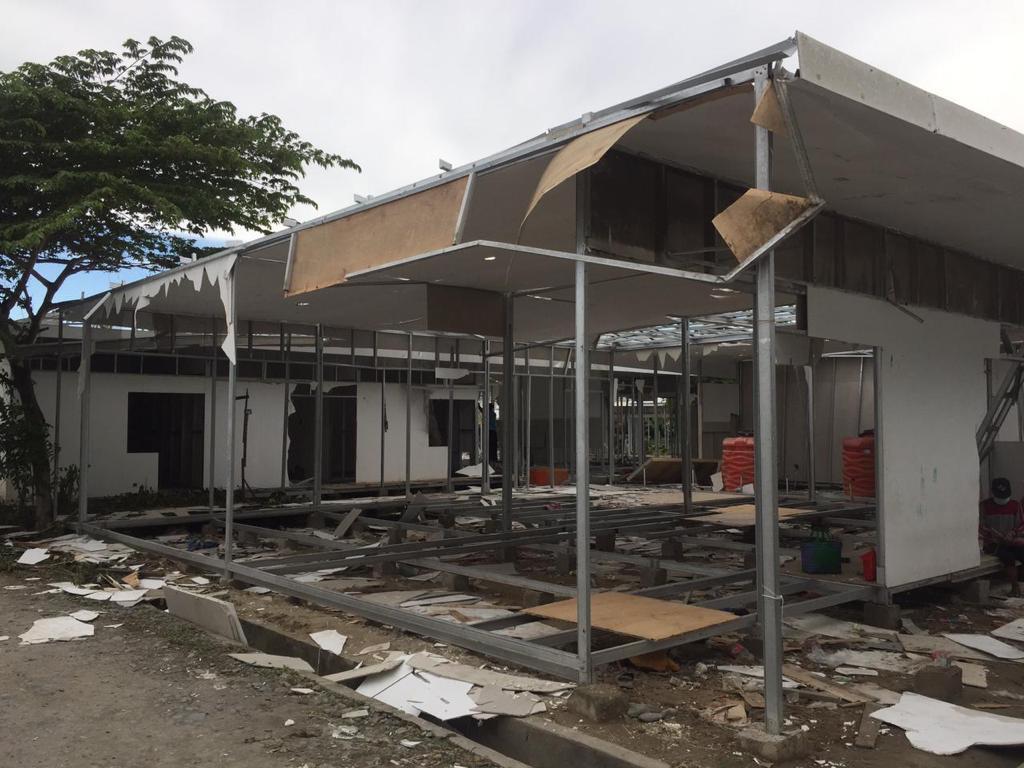Indonesia suffered a tremendous blow when a 7.4 magnitude earthquake triggered a devastating tsunami on 28 September 2018, a natural disaster which will remain etched in the minds of survivors and the families of the thousands who were lost. But for some, the tragedy has extended beyond a horrible memory and remains part of their daily reality.
Victim assistance by various international organisations in Central Sulawesi, the focal point of the disaster, included provisions of emergency tents, food and drinks, health care and trauma counselling.
No aid has arrived… we have lost everything
Yet the Indonesian government’s promise to immediately carry out post-disaster development failed to materialise. Three years on, significant aid is unavailable and many survivors have largely been left to fend for themselves. With the pandemic raging around them, many are still living in cramped shelters for internally displaced persons, far from access to assistance services, protection for women and child-friendly environments. Displaced residents are at risk of losing even these makeshift homes as temporary housing agreements begin to expire.
Indonesia’s National Disaster Management Agency (BNPB) reported the earthquake and tsunami killed 2,256 people, with more than 1,700 deaths in Palu City alone. Many were displaced from their homes and the UN reported at the time that about 200,000 people required humanitarian assistance.
In the days following the twin disaster, reports from the area included descriptions of bodies covered by tarps, first responders searching for survivors and pleas for help from people desperate for assistance from agencies hindered by limited supply flights.
“No aid has arrived,” a resident told the BBC. “We have lost everything.”

NGO Celebes Bergerak, which I work with as a board member, advocates for post-disaster management in Central Sulawesi and has determined the Indonesian government largely failed in its handling of the disaster.
Damage in Central Sulawesi was spread across different social and economic areas of the community. The largest hit came in the area of housing, with 68,451 homes lost or damaged, according to BNPB. Other infrastructure casualties included 362 shops, 327 places of worship, 265 schools, 78 offices, 168 roads and seven bridges.
A month after the disaster, BNPB estimated economic losses of Rp 13.82 trillion, equivalent to $911 million.
The government’s lack of support remains a pressing concern for Central Sulawesi residents. Hundreds of demonstrators shut down the main road in the Donggala Regency this week on 27 September and five of my fellow activists were arrested and released the next day. Protesters say the government has not fulfilled its promises to quickly build permanent houses and distribute funds to victims and demand greater transparency in the distribution of disaster funds. Leaders said they would continue to demonstrate until their demands are met.
There is a housing crisis. The destruction of homes created a sea of homelessness for months on end. Many social problems arise in uncomfortable places of refuge
A 2018 presidential directive authorising disaster assistance expired on 31 December 2020, leaving people there without necessary support. The regional government removed this assistance, saying the central government budget funded through the Ministry of Social Affairs expired without a new allocation for the insurance.
Many victims also have not received permanent housing, either through government schemes or stimulant funds, or economic recovery funding for lost employment.
Indonesian activist Arianto Sangaji said in a 2019 article for website IndoProgress that workers face mounting problems after a disaster such as the Central Sulawesi tragedy.
“Losing a job, temporary or permanent, is a tough one,” Sangaji wrote. “There is a housing crisis. The destruction of homes created a sea of homelessness for months on end. Many social problems arise in uncomfortable places of refuge. Like a pre-disaster, the ownership of decent and disaster-resistant houses remains hindered.”
Sangaji, a member of the Pasigala Centre, a Central Sulawesi earthquake victims advocacy organisation, has said government housing reconstruction projects or NGOs are options for survivors. But reconstruction is based on pre-disaster home ownership, lacking in some of the poorest communities, excluding many residents from government projects.
Problems in rural areas stemming from the natural tragedy were much worse for farmers who were already poor, he added, noting that small farmers must still repay debts to financial institutions.
“Losing land is like doomsday for subsistence farmers who depend on agricultural land for their breath,” Sangaji wrote for IndoProgress. “The destruction of irrigation, land and means of production made all classes of peasants suffer.”
The Ministry of Public Works, Public Housing, has said only 1,341 of the ministry’s target of 3,110 housing units have been constructed for residents affected by the disaster.
Rebuilding an area affected by a severe earthquake, tsunami and liquefaction – the loss of surface stability due to waterlogged sediment – is not a new thing. A natural disaster-prone country, Indonesia has invaluable experience in post-disaster reconstruction and rehabilitation in the provinces of Aceh, West Sumatra and other regions.
The main consideration in post-disaster development is the placement of humans in new locations that are not prone to new devastation. Considerations include various social, environmental, economic, cultural and service concerns.

But the delay in post-disaster development in the case of Central Sulawesi has been prolonged as the government has appeared to ignore input from external sources and give the impression it is working alone.
As mismanagement of the disaster response became apparent, Covid-19 struck in early 2020. The impact the virus has had on health, global business and nearly every aspect of social life is well known and still developing. But in Central Sulawesi, the pandemic has compounded the many difficulties caused by the 2018 cataclysm.
Public shelters in which survivors live do not provide enough space for safe social distancing and lack adequate water supplies for washing to prevent possible virus transmission. They also do not have the funding to buy personal protective equipment such as masks, gloves or hand sanitisers.
Beyond the brutal strain of life in a disaster recovery zone during a global health crisis, the survivors now face a new, life-threatening complication: the potential demolition of shelters because of the expiration of housing agreements.
The promise was to just wait and be patient, that was the only solution given
Residents of temporary shelters must pay rent to landlords and then still may be forced to leave when their contracts end. In several locations in Central Sulawesi, such as Pengawu Village, residents have been evicted from shelters, forcing them to return to their previous homes in areas that have not fully recovered from tsunami damage.
Sunarti, one of these residents, told me he was forced out of a shelter in Tavanjuka Village in January after the landowner decided to use the land for other purposes. The 42 year old is staying with relatives, but asked authorities for help finding a permanent home.
“The promise was to just wait and be patient, that was the only solution given,” said Sunarti, who attended the 27 September protest.
Survivors in Central Sulawesi have repeatedly asked the government to provide post-disaster recovery assistance to help them reorganise their lives. They would benefit from joint solutions involving the government, private sector, NGOs and other groups.
In the meantime, all they can do is hope to receive the assistance that has already been promised to them.
Abdul Haris is a board member of Celebes Bergerak, an Indonesian disaster management and education NGO that has helped organise relief efforts for Central Sulawesi earthquake and tsunami victims.


